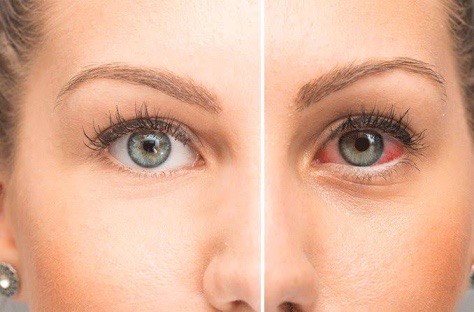Dry eyes can be a persistent and uncomfortable issue, impacting daily life and overall eye health. Fortunately, there are proactive steps you can take to prevent and alleviate dry eye symptoms. In this article, we’ll explore practical strategies to keep your eyes comfortable and well-lubricated.
- Hydration is Key: Staying adequately hydrated is fundamental to eye health. Ensure you drink enough water throughout the day to support the production of tears, which are essential for keeping your eyes moist.
- Blink Regularly, Blink Fully: In the era of digital screens, we often forget to blink regularly. Make a conscious effort to blink fully and frequently. This helps distribute a healthy layer of tears over the surface of your eyes, preventing dryness.
- Follow the 20-20-20 Rule: If you spend long hours staring at a screen, incorporate the 20-20-20 rule. Every 20 minutes, look at something 20 feet away for at least 20 seconds. This reduces eye strain and encourages natural blinking.
- Optimize Your Workspace: Adjust the lighting in your environment to reduce glare. Position your computer screen slightly below eye level and at a comfortable distance. This minimizes the strain on your eyes and can help prevent dryness.
- Use Artificial Tears: Consider using preservative-free artificial tears to lubricate your eyes, especially if you spend extended periods in air-conditioned or heated environments. Choose drops recommended by your eye care professional.
- Protect Your Eyes Outdoors: Wind, sun, and dust can contribute to dry eyes. Wear sunglasses that provide adequate protection against UV rays and environmental elements. Wraparound styles are particularly effective.
- Nutrient-Rich Diet: Consume foods rich in omega-3 fatty acids, such as salmon, flaxseeds, and walnuts. These nutrients contribute to a healthy tear film and can be beneficial in preventing dry eyes.
- Maintain Indoor Humidity: Use a humidifier in your living or working space, especially during the winter when indoor heating can reduce humidity. This helps prevent excessive evaporation of tears.
- Limit Contact Lens Wear: If you wear contact lenses, be mindful of their wear time. Extended use can contribute to dry eyes. Follow your eye care professional’s recommendations regarding lens wear and care.
- Regular Eye Exams: Schedule regular eye exams with your ophthalmologist. They can detect early signs of dry eye and provide personalized recommendations based on your eye health.
By incorporating these practical tips into your daily routine, you can significantly reduce the risk of developing dry eyes and enjoy comfortable, well-lubricated eyes. Remember, preventive measures are key to maintaining optimal eye health. If you experience persistent dry eye symptoms, consult with your eye care professional for personalized guidance and treatment options.

Leave a Reply